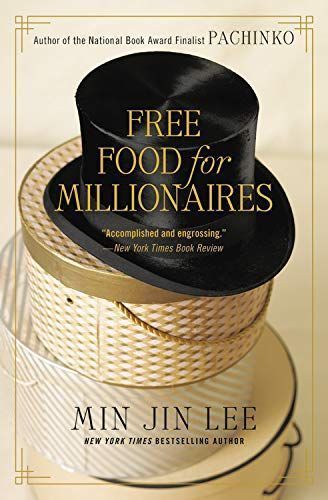
Free Food for Millionaires
FROM THE AUTHOR OF THE NATIONAL BOOK AWARD FINALIST PACHINKO New York Times Book Review Editor's ChoiceNPR Fresh Air Top Ten Books of the YearUSA Today Top Ten Books of the YearThe Times (London) Top Ten Books of the Year In her critically acclaimed debut, National Book Award finalist Min Jin Lee introduces the indelible Casey Han: a strong-willed, Queens-bred daughter of Korean immigrants who is addicted to a glamorous Manhattan lifestyle she cannot afford. Fresh out of Princeton with an economics degree, no job, and a popular white boyfriend, Casey is determined to carve a space for herself in the glittering world she craves-but at what cost? Lee's bestselling, sharp-eyed, sweeping epic of love, greed, and hunger-set in a landscape where millionaires scramble for the free lunches the poor are too proud to accept-is an addictively readable, startlingly sympathetic portrait of intergenerational strife and immigrant struggle, exposing the intricate layers of a community clinging to its old ways in a city packed with haves and have-nots.
Reviews
Sarah Sammis@pussreboots
Kathy Luo@katfluo
Karis Ryu@karisr
charisa@charisa
faye@chocodaawg
Shai@wowshai
Sarai Johnson@ess826
Liz@thispersonhere
Air@airhorn
Kwan Ann Tan@kwananntan
Nadine @intlnadine
jam 🍯@daymarkist
Emily S@bibliochemist
Tanya Sutton@mrsreads
Michelle Warner@mawarner94
kait@kmurpo
Allegrachatterjee@allegra
Paige Wanner@turntopaige22
Milly (:@millzzz
Beatrix@yurtletheturtle
jacob ketcham@jacobketcham
Leila Somani-Davis@leila711
Shohini Gupta@shohini
Amber Gibbons@booksncats
Highlights
Iara Figueira@iarathecell
Iara Figueira@iarathecell
Iara Figueira@iarathecell
Beatrix@yurtletheturtle
Page 79
Beatrix@yurtletheturtle
Page 45
Beatrix@yurtletheturtle
Page 27
Beatrix@yurtletheturtle
Beatrix@yurtletheturtle